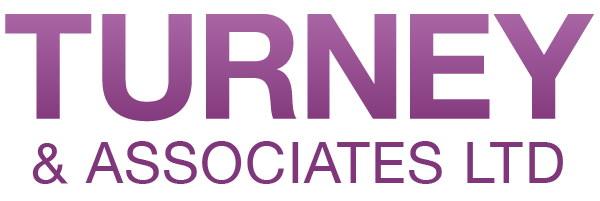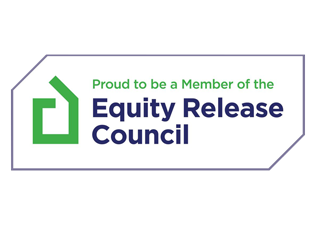Despite new measures to help first-time buyers, younger generations are still struggling to get on the housing ladder.
The average home in England costs £230,000, around a third more than it did ten years ago. This means that to cover even a 5% deposit, buyers need to find £11,500 on average. Add in stricter mortgage regulations and house price inflation that is outpacing wage growth and it seems like an impossible task for many.
But there are options available that bring home ownership within reach: Help to Buy (which is due to end in 2023) and shared ownership. For some people, renting might be the best option. Which is the right one for you?
Shared ownership: cheapest at point of purchase
This Government-backed scheme has already helped 200,000 households buy into their first home. You buy part of the property − between 25% and 75% − then pay rent on the rest. Buyers can then “staircase”, meaning that they keep purchasing a greater share of the house, gradually reducing their rent as they do.
The price point at entry for shared ownership is much lower than using the Help to Buy equity loan, as the deposit you need to put down is only on the proportion of the property that you are buying. For example, someone buying 50% of a £230,000 house would need just £5,750 to put down a minimum 5% deposit. They would then take out a mortgage for 45% of the property’s total cost and pay rent on the remainder. To purchase a 25% share you’d need only £2,875 for a deposit.
The scheme makes home ownership more attainable for many more people: research by Savills shows that a person earning £27,600 a year (just below the average salary) would qualify for a mortgage on 50% of a shared ownership home costing £230k. To buy 25% you would need to be earning just £21,600 per annum. By comparison, to buy the same property as a whole, you would need to earn £48,600 per year to qualify for a mortgage.
Someone using Help to Buy would need to find £11,500 to put down a 5% deposit on the full value of the house. Even with the help of the Government’s equity loan (20% of the cost of the house), you would still need an income of £38,800 a year to take out a mortgage on the remaining 75%.
Help to Buy: cheaper monthly payments over the long term
For the first 15 years after purchasing a shared ownership property, the cost of rent and mortgage repayments would be less than paying back a 75% mortgage and the Government’s equity loan on a Help to Buy home. Buyers are not charged fees on the 20% loan for the first five years after buying their home.
Someone buying the same £230,000 property in 2019 would pay just under £800 a month for 25% through shared ownership, and around £900 a month for both Help to Buy and a 50% shared ownership, with the latter generally proving cheaper over the first 14 years.
However, shared ownership rent rises in line with inflation, which means this option becomes less affordable over time. By 2033 the monthly cost for 50% of the shared ownership overtakes that of Help to Buy, and for 25% shared ownership of the property this would happen in 2037.
Nearing the end of a 25-year mortgage for the same house you’d be paying around £1,600 per month for either 25% or 50% shared ownership (mortgage and rent), compared to around £1,450 a month for Help to Buy. In each case the entire mortgage would be paid off after 25 years, but with Help to Buy at the end of this time you own 100% of the property, as opposed to just a proportion in the case of shared ownership.
Shared ownership versus private rental
“Even without staircasing, and taking into account the cost of rent, shared ownership remains significantly less expensive than the private rented sector throughout the 25-year mortgage term” said Helen Collins of Savills. “It also has the added benefit of security of tenure.”
The estate agency estimates that the cost of renting a property similar to the £230,000 average home in 25 years’ time will have rocketed to over £2,000 a month − around £400 a month more than shared ownership, without the benefit of owning at least a part of the home at the end.
Are there times when renting makes most sense?
For those who may suddenly find themselves having to relocate for work, Help to Buy and shared ownership will cause problems. Neither scheme allows you to sublet the property, meaning either that you are tied down to the area where you bought or that you will have to sell. The property also has to be the only one you own: you cannot live in a Help to Buy or shared ownership home while also running a separate buy-to-let.
While a Help to Buy property can be sold on to anyone, a shared ownership home can only be sold on to someone who meets the scheme’s criteria, i.e. they are a first-time buyer or from a low-income household. This can make them difficult to sell.
Owning one’s own home, even with the help of these schemes, is also made less attainable for those with little disposable income because of added costs entailed with buying a home. With many tenants seeing as much as half their income disappear on rent, finding the funds to cover stamp duty, surveyor fees and legal costs can be a challenge. A study by the HomeOwners Alliance recently revealed that the majority of renters in Britain don’t believe they will ever be able to afford to buy a home, even with the Government’s support schemes.
Will there be enough Help to Buy and shared ownership homes when I come to buy?
Around 40,000 households a year use Help to Buy. If all these purchasers switched to shared ownership once the loan comes to an end in 2023, new supply would have to increase by 150%, Savills has calculated. “Shared ownership is set to be the only major route to home ownership for people unable to meet the high deposit required to buy their own home without assistance,” said Lawrence Bowles, a research analyst at Savills.
The scheme has its critics, too: “Very often it involves the worst aspects of both home ownership – like repairs and inflexibility – and private renting” said Dan Wilson Craw, director of campaign group Generation Rent. “Both the rent and the cost of buying the rest of your home can keep going up.”
[Source: Telegraph, 11 June 2019]
Want to know more? Get in touch!







